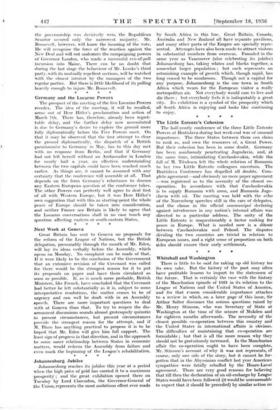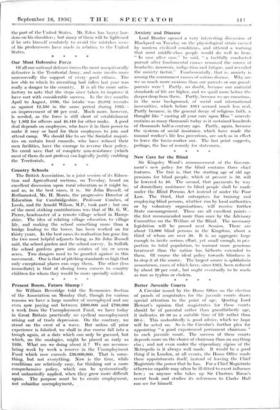Whitehall and Washington There is little to be said for
raking up old history for its own sake. But the history of the past may often have profitable lessons to impart to the statesmen of the future. That is certainly the case with the history of the Manchurian episode of 1931 in its relation to the League of Nations and the United States of America, and for that reason considerable importance attaches to a review in which, on a later page of this issue, Sir Arthur Salter discusses the serious questions raised by Mr. Henry Stimson, who was Secretary of State at Washington at the time of the seizure of Mukden and for eighteen months afterwards. The necessity of the closest possible co-operation between this country and the United States in international affairs is obvious. The difficulties of maintaining that co-operation are formidable ; but that is all the more reason why they should not be gratuitously increased. In the Manchurian affair the co-operation ought to have been complete. Mr. Stimson's account of why it was not represents, of course, only one side of the story, but it cannot be for- gotten that in the Abyssinian conflict last year American sympathies were fatally rebuffed by the Hoare-Laval agreement. There are very good reasons for believing that till then the declaration of an oil-embargo by League States would have been followed (it would be unreasonable to expect that it should be preceded) by similar action on the part of the United States. Mr. Eden has heavy bur- dens on his shoulders; but many of them will be lightened if he sets himself resolutely to avoid the mistakes some of his predecessors have made in relation to. the United States.











































 Previous page
Previous page